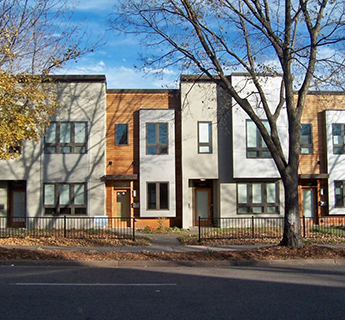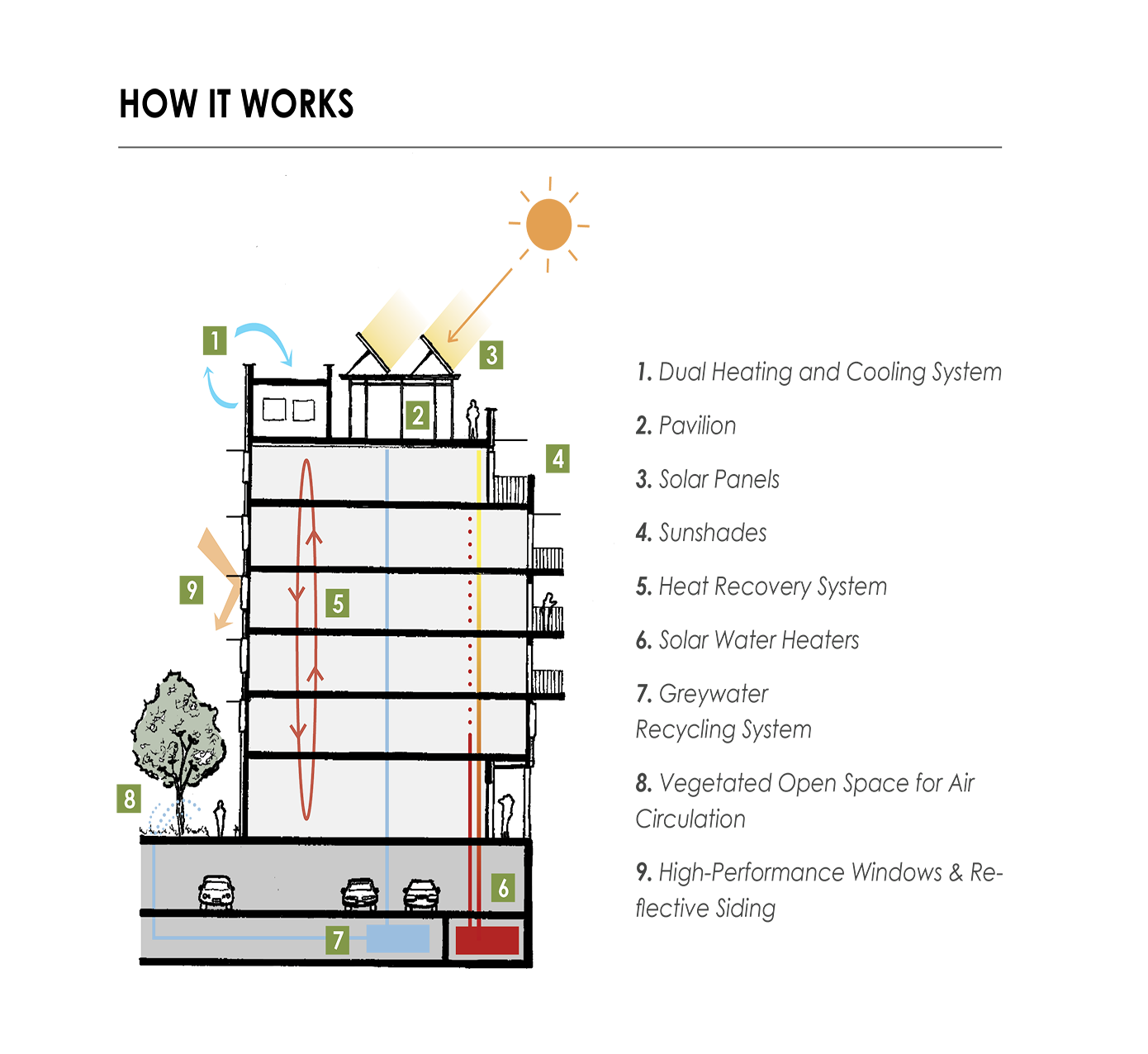Energy Efficient and Sustainable Buildings: Achieve steep increases in energy efficiency of buildings through retrofits, design of new buildings, and decarbonization options -while promoting sustainable building practices for new and existing construction.

The Minneapolis Climate Action Plan was adopted in 2013 and provides a road map toward reducing greenhouse gas emissions with targets of 15% by 2015 and 30% by 2025. In 2014, Minneapolis passed an 80% reduction goal by 2050 and formed the Clean Energy Partnership with Xcel Energy and CenterPoint Energy. Minneapolis has met its 2015 goal of a 15 percent reduction in emissions.
In 2015, buildings accounted for 71 percent of the city’s greenhouse gas emissions; with commercial and industrial buildings accounting for nearly two-thirds of that and residential buildings accounting for the remainder. Despite a growing number of buildings in the city, electricity consumption declined 6% between 2006 and 2015 and continues on a downward trajectory. Furthermore, emissions from electricity consumption are down 31% from 2006, accounting for 81% of the City’s total greenhouse gas reductions since 2006. Improved energy efficiency and cleaner electricity (more renewables and fewer coal power plants) drive this change. Emissions from electricity consumption are the largest share of the city’s inventory, but are expected to be eclipsed by natural gas in the coming years as more clean, renewable electricity is added to Xcel Energy’s portfolio. To achieve the 80 percent reduction in greenhouse gas emissions by 2050 we will need to drastically cut greenhouse gas emissions from buildings. Successfully achieving that reduction will require a transition from relying solely on fossil fuel-derived natural gas for heating.

 ACTION STEPS
ACTION STEPS
The City will seek to accomplish the following action steps to achieve steep increases in energy efficiency of buildings through retrofits, design of new buildings, and decarbonization options -while promoting sustainable building practices for new and existing construction.
- Pursue a deep-carbon building retrofit program, including a fuel-switching component that eliminates fossil fuel dependency from all existing buildings and retrofits that eliminate dependency on fossil fuel appliances.
- Prioritize and incentivize energy efficiency improvements in existing residential and commercial buildings with program emphasis on high energy users, historic buildings, low-income neighborhoods, and Green Zones.
- Investigate heating in buildings and industrial energy needs and decarbonization options.
- Require sustainable design practices and principles for projects supported with City financing, with a focus on robust energy efficiency and building envelope and environmentally friendly building treatments including bird-safe glass.
- Identify ways to encourage and incentivize sustainable design practices and principle for privately-funded projects.
- Continue to pursue building code and other regulatory changes such as a stretch energy code to advance energy efficient design and building operations.
- Encourage use of environmentally responsible building materials and construction practices.
- Update the Minneapolis Climate Action Plan to provide a roadmap, with clear benchmarks, for achieving community-wide carbon neutrality by 2050.
- Create and implement site plan review requirements to show how development applications align with the Minneapolis Climate Action Plan.
- Pursue benchmarking and/or disclosure of energy performance of all residential and commercial buildings.
- Help secure and fund demonstration projects of emerging or underutilized technologies, concepts, designs and methods.

